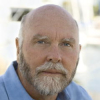Craig Venter

Craig Venter
John Craig Venteris an American biotechnologist, biochemist, geneticist, and entrepreneur. He is known for being one of the first to sequence the human genome and the first to transfect a cell with a synthetic genome. Venter founded Celera Genomics, The Institute for Genomic Researchand the J. Craig Venter Institute, and is now CEO of Human Longevity Inc. He was listed on Time magazine's 2007 and 2008 Time 100 list of the most influential people in the world. In 2010, the...
NationalityAmerican
ProfessionScientist
Date of Birth14 October 1946
CountryUnited States of America
When you think of all the things that are made from oil or in the chemical industry, if in the future we could find cells to replace most of those processes, the ideal way would be to do it by direct design.
I think future engineered species could be the source of food, hopefully a source of energy, environmental remediation and perhaps replacing the petrochemical industry.
Creating life at the speed of light is part of a new industrial revolution. Manufacturing will shift from centralised factories to a distributed, domestic manufacturing future, thanks to the rise of 3D printer technology.
Sometime in the future, I am a hundred percent certain scientists will sit down at a computer terminal, design what they want the organism to do, and build it.
Genome design is going to be a key part of the future. That's why we need fast, cheap, accurate DNA synthesis, so you can make a lot of iterations of something and test them.
I see, in the future, bioengineered almost everything you can imagine that we use.
The future of society is 100% dependent on scientific advances.
We're moving from reading the genetic code to writing it.
There are enzymes called restriction enzymes that actually digest DNA.
We're a country of laws and rules, and the Supreme Court has ruled that life forms are patentable entities.
There is a long history of how DNA sequencing can bring certainty to people's lives.
Right now, oil is being isolated around the globe, and there is a major effort in shipping, trucking and otherwise transporting that oil around to a very finite number of refineries. Biology allows us to make these same fuels in a much more distributed fashion.
Organisms in the ocean provide over 40 percent of the oxygen we breathe, and they're the major sink for capturing all the carbon dioxide we constantly release into the atmosphere.
Mathematicians have been hiding and writing messages in the genetic code for a long time, but it's clear they were mathematicians and not biologists because, if you write long messages with the code that the mathematicians developed, it would more than likely lead to new proteins being synthesized with unknown functions.